CHINA’S railway freight volume reported stable growth in the first half of 2025, with more efficient network operation and improved services, the national railway operator said Sunday.
The national railway system transported a total of 1.98 billion tonnes of cargo in the period, marking a year-on-year increase of three per cent, according to China State Railway Group Co Ltd. The daily average number of loaded freight cars reached 182,400, up four per cent from the same period last year.
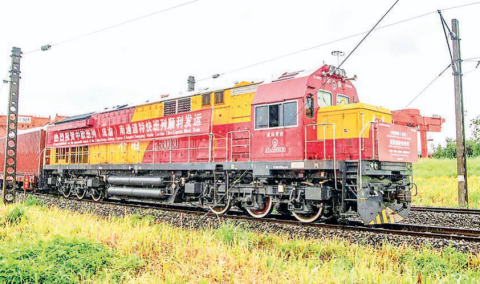
CHINA’S railway freight volume reported stable growth in the first half of 2025, with more efficient network operation and improved services, the national railway operator said Sunday.
The national railway system transported a total of 1.98 billion tonnes of cargo in the period, marking a year-on-year increase of three per cent, according to China State Railway Group Co Ltd. The daily average number of loaded freight cars reached 182,400, up four per cent from the same period last year.
The company said it made full use of the integrated rail network and pushed forward market-oriented reforms in railway freight transport to boost logistics capacity, efficiency and service quality.
During the January-June period, coal transport totalled 1.02 billion tonnes, and the freight volume for metallurgical goods and grain rose 8.6 per cent and 9.8 per cent, respectively. International freight also posted stable performance.
The Central Asia freight train service operated 7,349 trains, a 25 per cent increase from a year ago. The China-Laos Railway transported nearly 3.03 million tonnes of cross-border cargo, up nine per cent. — Xinhua
GNLM
CHINA’S railway freight volume reported stable growth in the first half of 2025, with more efficient network operation and improved services, the national railway operator said Sunday.
The national railway system transported a total of 1.98 billion tonnes of cargo in the period, marking a year-on-year increase of three per cent, according to China State Railway Group Co Ltd. The daily average number of loaded freight cars reached 182,400, up four per cent from the same period last year.
The company said it made full use of the integrated rail network and pushed forward market-oriented reforms in railway freight transport to boost logistics capacity, efficiency and service quality.
During the January-June period, coal transport totalled 1.02 billion tonnes, and the freight volume for metallurgical goods and grain rose 8.6 per cent and 9.8 per cent, respectively. International freight also posted stable performance.
The Central Asia freight train service operated 7,349 trains, a 25 per cent increase from a year ago. The China-Laos Railway transported nearly 3.03 million tonnes of cross-border cargo, up nine per cent. — Xinhua
GNLM

Rome July 20
As a trade deal between the United States and the European Union (EU) remains unresolved, Italy is grappling with dual challenges: a new round of U.S. tariffs that could directly hit its export-reliant economy and a weakening U.S. dollar that effectively acts as an "implicit" tariff on Italian exports.
Rome July 20
As a trade deal between the United States and the European Union (EU) remains unresolved, Italy is grappling with dual challenges: a new round of U.S. tariffs that could directly hit its export-reliant economy and a weakening U.S. dollar that effectively acts as an "implicit" tariff on Italian exports.
U.S. President Donald Trump has announced the decision to impose a 30 percent tariff on imports from the EU and Mexico starting Aug. 1, adding fresh uncertainty for Italian exporters who depend heavily on the American market.
According to Italy's National Institute of Statistics (ISTAT), Italy ranked as the EU's third-largest exporter to the United States in 2024, with shipments to that market accounting for 10 percent of its total exports, a share comparable to Germany and higher than France or Spain.
In 2024, Italy posted a trade surplus of 39 billion euros with the United States. Exports to the United States represent 22.2 percent of Italy's sales to non-EU countries, exceeding the EU average of 19.7 percent. Italy's top export sectors to the United States include beverages, automobiles, and other transport equipment, according to a report by Confindustria, Italy's major association representing manufacturing and service companies.
Yadanar Bon Newspaper
Rome July 20
As a trade deal between the United States and the European Union (EU) remains unresolved, Italy is grappling with dual challenges: a new round of U.S. tariffs that could directly hit its export-reliant economy and a weakening U.S. dollar that effectively acts as an "implicit" tariff on Italian exports.
U.S. President Donald Trump has announced the decision to impose a 30 percent tariff on imports from the EU and Mexico starting Aug. 1, adding fresh uncertainty for Italian exporters who depend heavily on the American market.
According to Italy's National Institute of Statistics (ISTAT), Italy ranked as the EU's third-largest exporter to the United States in 2024, with shipments to that market accounting for 10 percent of its total exports, a share comparable to Germany and higher than France or Spain.
In 2024, Italy posted a trade surplus of 39 billion euros with the United States. Exports to the United States represent 22.2 percent of Italy's sales to non-EU countries, exceeding the EU average of 19.7 percent. Italy's top export sectors to the United States include beverages, automobiles, and other transport equipment, according to a report by Confindustria, Italy's major association representing manufacturing and service companies.
Yadanar Bon Newspaper
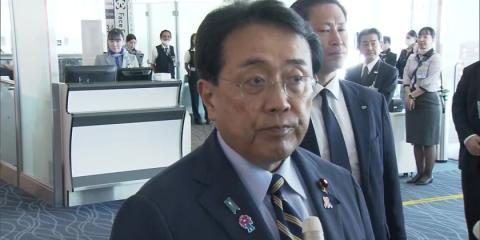
Japan’s top negotiator for trade talked with the United States has left for Washington as the US is poised to impose a 25-percent tariff on imports from Japan starting August 1.
Economic Revitalization Minister Akazawa Ryosei made his eighth trip to the US capital for tariff negotiations.
Speaking to reporters before his departure, Akazawa said that negotiations would not be easy as both Japan and the US need to protect their national interests.
mitv
Japan’s top negotiator for trade talked with the United States has left for Washington as the US is poised to impose a 25-percent tariff on imports from Japan starting August 1.
Economic Revitalization Minister Akazawa Ryosei made his eighth trip to the US capital for tariff negotiations.
Speaking to reporters before his departure, Akazawa said that negotiations would not be easy as both Japan and the US need to protect their national interests.
mitv
Japan’s top negotiator for trade talked with the United States has left for Washington as the US is poised to impose a 25-percent tariff on imports from Japan starting August 1.
Economic Revitalization Minister Akazawa Ryosei made his eighth trip to the US capital for tariff negotiations.
Speaking to reporters before his departure, Akazawa said that negotiations would not be easy as both Japan and the US need to protect their national interests.
mitv
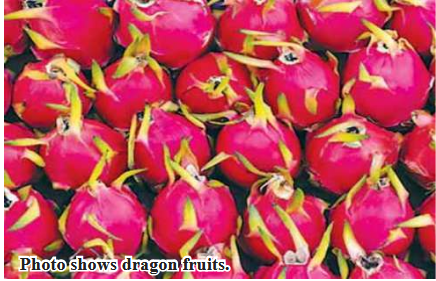
Yekyi July 20
Demand is high in the domestic market of Yekyi Township in Ayeyawady Region to purchase dragon fruits, said Daw Htay Htay Yi, the owner of agricultural product trading in Yekyi Township.
In Yekyi Township, locally grown dragon fruits have seen strong purchasing demand and good trade performance from the second week of July until today.
These local dragon fruits are currently selling for up to K150,000 per 100 pieces of fruit. In addition to local markets, demand from the Yangon market has also been strong.
Yekyi July 20
Demand is high in the domestic market of Yekyi Township in Ayeyawady Region to purchase dragon fruits, said Daw Htay Htay Yi, the owner of agricultural product trading in Yekyi Township.
In Yekyi Township, locally grown dragon fruits have seen strong purchasing demand and good trade performance from the second week of July until today.
These local dragon fruits are currently selling for up to K150,000 per 100 pieces of fruit. In addition to local markets, demand from the Yangon market has also been strong.
“Locally grown agricultural products from Yekyi Township are being transported and sold in the Yangon market. Since the second
week of this month, buyers from Yangon have been actively purchasing the fruits.
At present, a large number of dragon fruits are being sold. This is the harvest season for dragon fruits in Yekyi, and the fruits being produced are of good quality. They are also in high demand in the market,” said Daw Htay Htay Yi.
In Yekyi Township, farmers cultivate dragon fruits organically on plots ranging from one to five acres per farmer. The cultivation is done in collaboration among local entrepreneurs, farmers, and agricultural experts. Due to the strong market performance of these local dragon fruits, plans are underway to expand cultivation areas in the upcoming summer season. -Kyaw Kyaw Lin
Yadanar Bon Nespaper
Yekyi July 20
Demand is high in the domestic market of Yekyi Township in Ayeyawady Region to purchase dragon fruits, said Daw Htay Htay Yi, the owner of agricultural product trading in Yekyi Township.
In Yekyi Township, locally grown dragon fruits have seen strong purchasing demand and good trade performance from the second week of July until today.
These local dragon fruits are currently selling for up to K150,000 per 100 pieces of fruit. In addition to local markets, demand from the Yangon market has also been strong.
“Locally grown agricultural products from Yekyi Township are being transported and sold in the Yangon market. Since the second
week of this month, buyers from Yangon have been actively purchasing the fruits.
At present, a large number of dragon fruits are being sold. This is the harvest season for dragon fruits in Yekyi, and the fruits being produced are of good quality. They are also in high demand in the market,” said Daw Htay Htay Yi.
In Yekyi Township, farmers cultivate dragon fruits organically on plots ranging from one to five acres per farmer. The cultivation is done in collaboration among local entrepreneurs, farmers, and agricultural experts. Due to the strong market performance of these local dragon fruits, plans are underway to expand cultivation areas in the upcoming summer season. -Kyaw Kyaw Lin
Yadanar Bon Nespaper
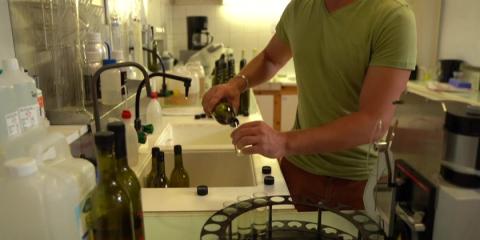
In the Gers region in southern France, a dealcoholization center produces nearly 6,000 hectoliters of non-alcoholic wine to meet new consumption trends.
In the Gers region in southern France, a dealcoholization center produces nearly 6,000 hectoliters of non-alcoholic wine to meet new consumption trends.
In the facilities, alcohol molecules are removed while preserving the aromas of the wine, using a multi-step process intended to ensure the quality of the beverage. To make a quality dealcoholized wine, an excellent base wine is a must. Consequently, a well-managed vineyard, healthy grapes and good winemaking. There is also an awareness, especially among younger people, that alcohol is somewhat less of a societal, social, or belonging phenomenon. It’s also about enjoying good quality products without unnecessary side effect.
mitv
In the Gers region in southern France, a dealcoholization center produces nearly 6,000 hectoliters of non-alcoholic wine to meet new consumption trends.
In the facilities, alcohol molecules are removed while preserving the aromas of the wine, using a multi-step process intended to ensure the quality of the beverage. To make a quality dealcoholized wine, an excellent base wine is a must. Consequently, a well-managed vineyard, healthy grapes and good winemaking. There is also an awareness, especially among younger people, that alcohol is somewhat less of a societal, social, or belonging phenomenon. It’s also about enjoying good quality products without unnecessary side effect.
mitv
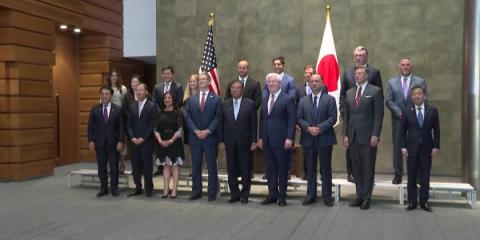
Japanese Prime Minister Shigeru Ishiba hosted US Treasury Secretary Scott Bessent on Friday ahead of a Washington deadline to reach a trade deal or face new tariffs.
US President Donald Trump has said to impose a 25-percent tariff on all Japanese imports from August 1st, in addition to tough levies already imposed on vehicles, steel and aluminium. Ishiba said regarding the US tariffs, he told Scott Bessent to continue communicating with minister Akazawa so that they could reach an agreement beneficial for both countries.
Japanese Prime Minister Shigeru Ishiba hosted US Treasury Secretary Scott Bessent on Friday ahead of a Washington deadline to reach a trade deal or face new tariffs.
US President Donald Trump has said to impose a 25-percent tariff on all Japanese imports from August 1st, in addition to tough levies already imposed on vehicles, steel and aluminium. Ishiba said regarding the US tariffs, he told Scott Bessent to continue communicating with minister Akazawa so that they could reach an agreement beneficial for both countries.
mitv
Japanese Prime Minister Shigeru Ishiba hosted US Treasury Secretary Scott Bessent on Friday ahead of a Washington deadline to reach a trade deal or face new tariffs.
US President Donald Trump has said to impose a 25-percent tariff on all Japanese imports from August 1st, in addition to tough levies already imposed on vehicles, steel and aluminium. Ishiba said regarding the US tariffs, he told Scott Bessent to continue communicating with minister Akazawa so that they could reach an agreement beneficial for both countries.
mitv
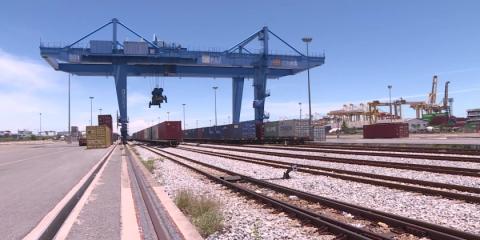
Thai Deputy Prime Minister and Finance Minister Pichai Chunhavajira is optimistic about a U.S. customs duty rate near 20% for Thai products, aiming for parity with regional competitors.
This follows “Team Thailand’s” recent “win-win” video conference negotiations with the U.S. Trade Representative. Pichai said the detailed discussions were positive, and he anticipates results before the August 1 deadline.
Thai Deputy Prime Minister and Finance Minister Pichai Chunhavajira is optimistic about a U.S. customs duty rate near 20% for Thai products, aiming for parity with regional competitors.
This follows “Team Thailand’s” recent “win-win” video conference negotiations with the U.S. Trade Representative. Pichai said the detailed discussions were positive, and he anticipates results before the August 1 deadline.
While acknowledging not all initial goals may be met, he hopes for a balanced outcome benefiting Thai industries. Pichai also emphasized the need for Thailand to boost production efficiency to compete in open markets, stressing that increased imports should align with greater domestic manufacturing and exports. He added that the government must protect and support agricultural and SME sectors.
mitv
Thai Deputy Prime Minister and Finance Minister Pichai Chunhavajira is optimistic about a U.S. customs duty rate near 20% for Thai products, aiming for parity with regional competitors.
This follows “Team Thailand’s” recent “win-win” video conference negotiations with the U.S. Trade Representative. Pichai said the detailed discussions were positive, and he anticipates results before the August 1 deadline.
While acknowledging not all initial goals may be met, he hopes for a balanced outcome benefiting Thai industries. Pichai also emphasized the need for Thailand to boost production efficiency to compete in open markets, stressing that increased imports should align with greater domestic manufacturing and exports. He added that the government must protect and support agricultural and SME sectors.
mitv
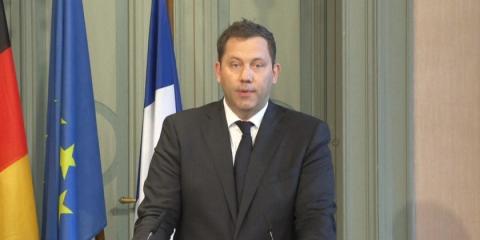
The French and German Finance Ministers on Wednesday urged the United States to hold "serious and targeted" talks to reach a fair agreement in the US-EU tariff dispute. Germany's Lars Klingbeil stated that "new threats or provocations every day" from the U.S. are unhelpful. During a joint press conference with French counterpart Eric Lombard, Lars Klingbeil stated that they continue to reach out, but will not accept just anything.
mitv
The French and German Finance Ministers on Wednesday urged the United States to hold "serious and targeted" talks to reach a fair agreement in the US-EU tariff dispute. Germany's Lars Klingbeil stated that "new threats or provocations every day" from the U.S. are unhelpful. During a joint press conference with French counterpart Eric Lombard, Lars Klingbeil stated that they continue to reach out, but will not accept just anything.
mitv
The French and German Finance Ministers on Wednesday urged the United States to hold "serious and targeted" talks to reach a fair agreement in the US-EU tariff dispute. Germany's Lars Klingbeil stated that "new threats or provocations every day" from the U.S. are unhelpful. During a joint press conference with French counterpart Eric Lombard, Lars Klingbeil stated that they continue to reach out, but will not accept just anything.
mitv
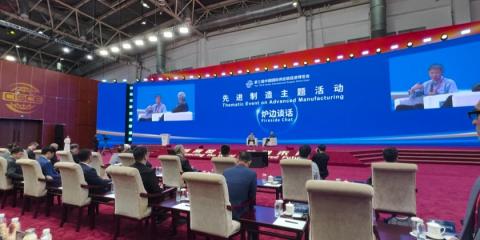
Nvidia CEO Jensen Huang attended an event with Alibaba's Cloud founder Wang Jian in Beijing on the sidelines of the China International Supply Chain Expo.
He told reporters at that expo that top officials, including Vice Premier He Lifeng, had assured him this week that China was "open and stable". Huang also noted he assured them that his firm was keen to serve the massive Chinese market for microchips needed in everything from mobile phones to electric vehicles.
mitv
Nvidia CEO Jensen Huang attended an event with Alibaba's Cloud founder Wang Jian in Beijing on the sidelines of the China International Supply Chain Expo.
He told reporters at that expo that top officials, including Vice Premier He Lifeng, had assured him this week that China was "open and stable". Huang also noted he assured them that his firm was keen to serve the massive Chinese market for microchips needed in everything from mobile phones to electric vehicles.
mitv
Nvidia CEO Jensen Huang attended an event with Alibaba's Cloud founder Wang Jian in Beijing on the sidelines of the China International Supply Chain Expo.
He told reporters at that expo that top officials, including Vice Premier He Lifeng, had assured him this week that China was "open and stable". Huang also noted he assured them that his firm was keen to serve the massive Chinese market for microchips needed in everything from mobile phones to electric vehicles.
mitv
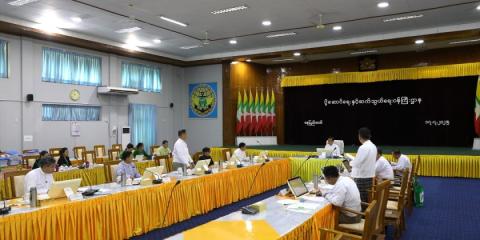
The Myanmar Investment Commission (MIC) approved 35 new investment projects, including 9 foreign and 26 local ventures.
The permission was made during the MIC meeting on Thursday, attended by MIC Chairman member of the State Administration Council Deputy Prime Minister General Mya Tun Oo. These projects cover sectors such as electricity generation, agriculture, EV manufacturing, garments, and services.
The Myanmar Investment Commission (MIC) approved 35 new investment projects, including 9 foreign and 26 local ventures.
The permission was made during the MIC meeting on Thursday, attended by MIC Chairman member of the State Administration Council Deputy Prime Minister General Mya Tun Oo. These projects cover sectors such as electricity generation, agriculture, EV manufacturing, garments, and services.
The total investment amounts to over 72 million US dollar and more than 67 billion kyat, expected to create around 9,220 jobs. The approved projects include several in high-priority sectors like energy, food production, and employment-generating industries.
As of June 2025, the top investing countries in Myanmar are Singapore, China, and Thailand, with the energy sector receiving the largest share of total foreign investments. The MIC continues to review proposals and provide support in line with the Myanmar Investment Law.
mitv
The Myanmar Investment Commission (MIC) approved 35 new investment projects, including 9 foreign and 26 local ventures.
The permission was made during the MIC meeting on Thursday, attended by MIC Chairman member of the State Administration Council Deputy Prime Minister General Mya Tun Oo. These projects cover sectors such as electricity generation, agriculture, EV manufacturing, garments, and services.
The total investment amounts to over 72 million US dollar and more than 67 billion kyat, expected to create around 9,220 jobs. The approved projects include several in high-priority sectors like energy, food production, and employment-generating industries.
As of June 2025, the top investing countries in Myanmar are Singapore, China, and Thailand, with the energy sector receiving the largest share of total foreign investments. The MIC continues to review proposals and provide support in line with the Myanmar Investment Law.
mitv

